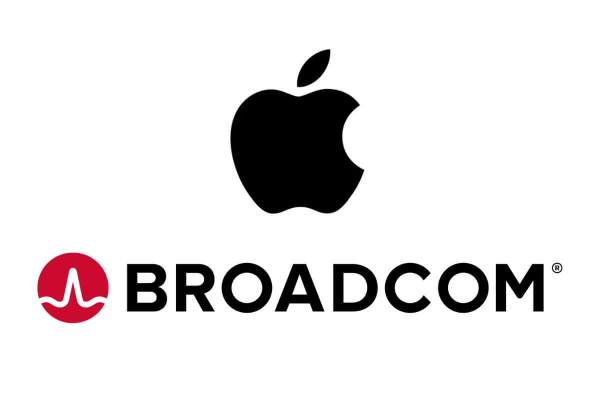Apple Aims to Cut Nvidia Reliance with Broadcom Partnership on AI Chip: Report
Apple's AI Ambitions As AI continues to reshape industries, Apple has increasingly focused on incorporating machine learning and AI into its devices. From Siri
- by B2B Desk 2024-12-12 09:58:47
In a strategic move to reduce its dependence on Nvidia, Apple has reportedly entered into a partnership with Broadcom to develop an advanced AI chip. This collaboration is seen as a pivotal step in Apple's quest to assert more control over its hardware ecosystem and mitigate its reliance on third-party chipmakers like Nvidia, particularly in the rapidly expanding field of artificial intelligence (AI).
The Shift Towards Independence
Apple has long been known for its control over the hardware and software that powers its products, from iPhones and MacBooks to its custom-designed silicon chips. However, its reliance on Nvidia for certain graphics and AI processing needs has remained a significant part of its supply chain. With AI technology increasingly becoming central to the next generation of computing, Apple’s move to partner with Broadcom marks a crucial step toward reducing its dependency on Nvidia’s GPUs (Graphics Processing Units), which are commonly used for AI tasks.
The Role of Broadcom in the Partnership
Broadcom, a leading semiconductor company, will work with Apple to develop a new AI chip that could power a range of Apple devices, potentially including iPhones, iPads, Macs, and even wearables. While the exact details of the chip are still under wraps, the collaboration could involve the development of custom processors optimized for AI workloads, providing Apple with more control over its hardware stack and reducing its reliance on external suppliers like Nvidia.
The partnership with Broadcom is seen as a natural extension of Apple’s existing collaboration with the semiconductor company. Apple has already worked with Broadcom on various components, including wireless chips, and the new AI chip venture could further deepen the relationship between the two firms.

Apple's AI Ambitions
As AI continues to reshape industries, Apple has increasingly focused on incorporating machine learning and AI into its devices. From Siri and facial recognition to more advanced features like real-time video processing and personalized recommendations, Apple’s devices are becoming more intelligent and capable. By developing its own AI chips, Apple aims to streamline its AI processing capabilities, ensuring tighter integration with its software ecosystem.
Apple’s desire for self-sufficiency in AI hardware aligns with its broader strategy of vertical integration, allowing the company to better control product development, enhance performance, and optimize energy efficiency. Apple’s custom-designed chips, such as the M1 and M2 processors, have already set new standards in performance, and an AI-focused chip would allow the company to push the envelope even further.
The Impact on Nvidia
The move to partner with Broadcom could have significant implications for Nvidia, which has been a dominant player in the AI hardware market. Nvidia’s GPUs are widely regarded as the gold standard for AI and machine learning applications, and the company has seen explosive growth as AI technologies have gained traction across industries. However, Apple’s decision to build its own AI chip could reduce the demand for Nvidia’s offerings in certain areas, particularly in consumer-facing devices.
While Nvidia’s chips will likely remain crucial for high-performance computing tasks, Apple’s AI chips could serve as a more cost-effective and tailored solution for its ecosystem, further distancing the company from its dependence on third-party suppliers.
A Step Toward Custom Silicon Dominance
Apple’s move to reduce its reliance on Nvidia is just one part of a broader strategy to assert dominance in custom silicon. The company has already shown the world the power of its M-series chips, which have revolutionized the performance of its Macs and iPads. By partnering with Broadcom on an AI chip, Apple is positioning itself to further integrate AI capabilities into its products while maintaining its reputation for designing hardware that is perfectly tuned for its software.
This move also signals that Apple is taking a long-term approach to AI and is committed to developing the necessary tools and infrastructure to ensure that it remains a leader in the space. Custom-built AI chips could help Apple stay ahead of its competitors, particularly in areas like machine learning and augmented reality, where hardware and software integration is key to success.
Conclusion
Apple’s reported partnership with Broadcom to develop an AI chip marks a significant step in its strategy to reduce reliance on Nvidia and other third-party suppliers. By designing its own AI hardware, Apple aims to create a more cohesive ecosystem, further integrate machine learning into its products, and maintain greater control over its technology. As the demand for AI processing power continues to rise, Apple’s move could reshape the competitive landscape, particularly for companies like Nvidia, who have dominated the AI hardware market for years. With its expertise in custom silicon and deepening relationships with key players like Broadcom, Apple is poised to take a leading role in the AI chip race.
POPULAR POSTS
The Agentic Revolution: Why Salesforce Is Betting Its Future on AI Agents
by Shan, 2025-11-05 10:29:23
OpenAI Offers ChatGPT Go Free in India: What’s Behind This Big AI Giveaway?
by Shan, 2025-10-28 12:19:11
Zoho Products: Complete List, Launch Years, and What Each One Does
by Shan, 2025-10-13 12:11:43
Arattai vs WhatsApp: Which Messaging App Should You Choose in 2025?
by Shan, 2025-10-10 11:55:06
Top Buy Now Pay Later (BNPL) Apps for Easy Shopping in 2025
by Shan, 2025-09-22 10:56:23
iPhone 17 Sale in India Begins: Full Price List, Launch Offers and Store Availability
by Shan, 2025-09-19 12:00:45
Apple September 2025 Event Recap: iPhone 17, iPhone Air, Apple Watch Series 11, and India Pricing Revealed
by Shan, 2025-09-10 09:55:45
RECENTLY PUBLISHED

Loan EMIs to Drop as RBI Slashes Repo Rate - Full MPC December 2025 Highlights
- by Shan, 2025-12-05 11:49:44

Pine Labs IPO 2025: Listing Date, Grey Market Premium, and Expert Outlook
- by Shan, 2025-11-05 09:57:07

Top 10 Insurance Companies in India 2026: Life, Health, and General Insurance Leaders Explained
- by Shan, 2025-10-30 10:06:42

Best Silver Investment Platforms for 2025: From CFDs to Digital Vaults Explained
- by Shan, 2025-10-23 12:22:46

Zoho Mail vs Gmail (2025): Which Email Platform Is Best for Businesses, Startups, and Students?
- by Shan, 2025-10-09 12:17:26

PM Modi Launches GST Bachat Utsav: Lower Taxes, More Savings for Every Indian Household
- by Shan, 2025-09-24 12:20:59




 Subscribe now
Subscribe now 